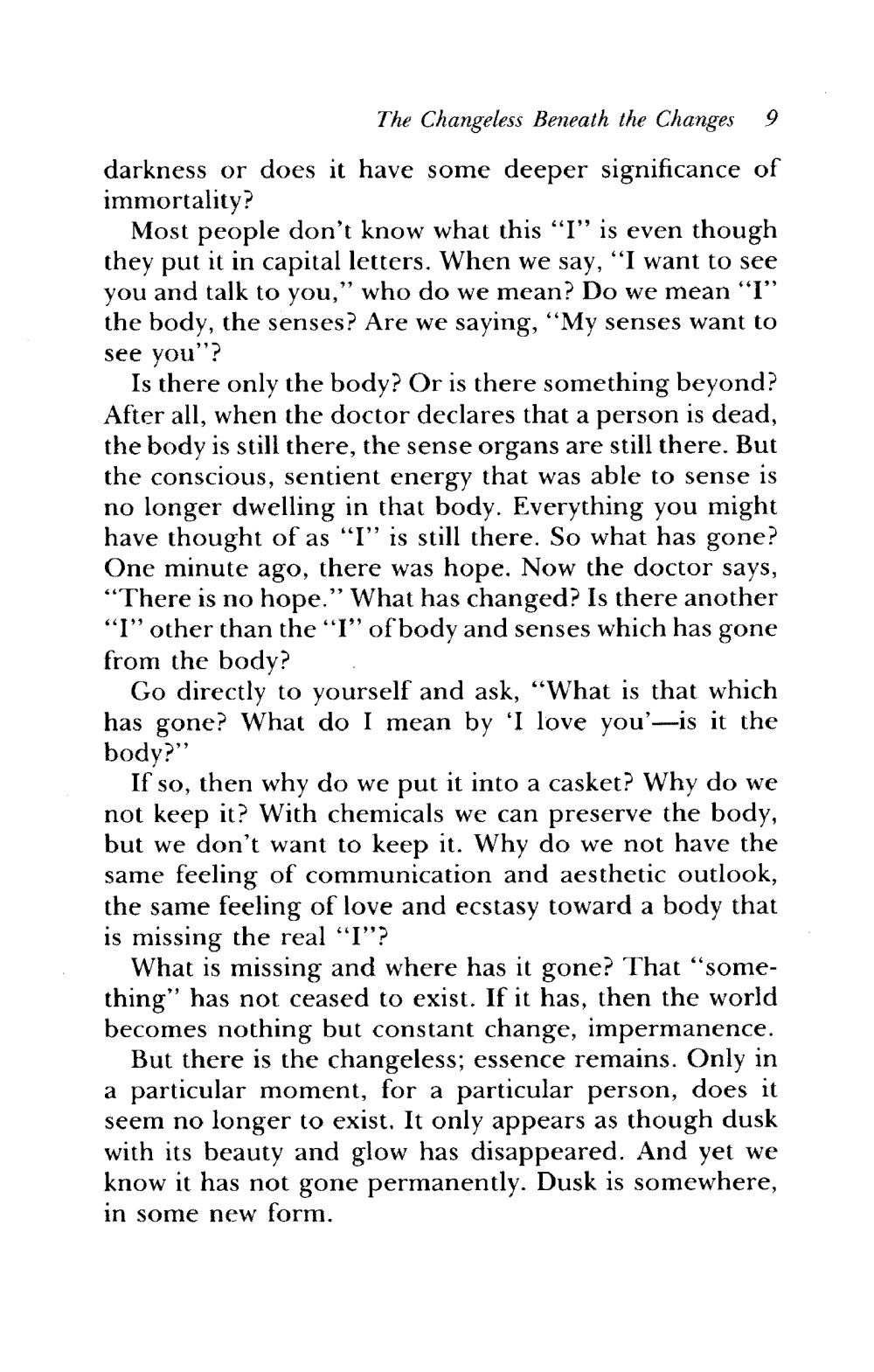________________
The Changeless Beneath the Changes 9 darkness or does it have some deeper significance of immortality?
Most people don't know what this “I” is even though they put it in capital letters. When we say, “I want to see you and talk to you,” who do we mean? Do we mean “I” the body, the senses? Are we saying, “My senses want to see you”?
Is there only the body? Or is there something beyond? After all, when the doctor declares that a person is dead, the body is still there, the sense organs are still there. But the conscious, sentient energy that was able to sense is no longer dwelling in that body. Everything you might have thought of as “I” is still there. So what has gone? One minute ago, there was hope. Now the doctor says, “There is no hope.” What has changed? Is there another “I” other than the “I” of body and senses which has gone from the body?
Go directly to yourself and ask, “What is that which has gone? What do I mean by 'I love you'-is it the body?”
If so, then why do we put it into a casket? Why do we not keep it? With chemicals we can preserve the body, but we don't want to keep it. Why do we not have the same feeling of communication and aesthetic outlook, the same feeling of love and ecstasy toward a body that is missing the real “I”?
What is missing and where has it gone? That “something" has not ceased to exist. If it has, then the world becomes nothing but constant change, impermanence.
But there is the changeless; essence remains. Only in a particular moment, for a particular person, does it seem no longer to exist. It only appears as though dusk with its beauty and glow has disappeared. And yet we know it has not gone permanently. Dusk is somewhere, in some new form.




